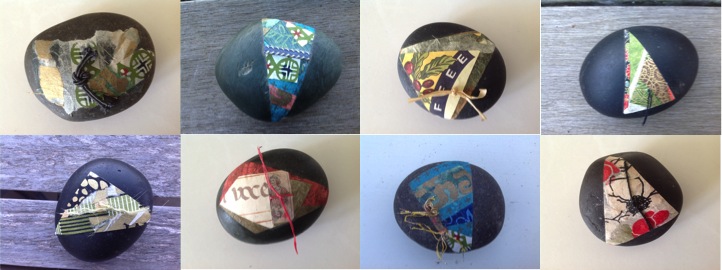I’ve been a fan of baseball ever since Willie Mays roamed center field for the New York Giants. When I played Little League in Vancouver, Canada my teammates and I all had heroes who played our position in the Majors. I was a center fielder so Willie was my hero. I moved to San Francisco over 30 years ago and re-connected with my love for Giants baseball.

The recent Giants World Series win (woo hoo!!) has me thinking about the similarities between playing Major League baseball and running a small business…
It takes specific skills and years of practice
A baseball player must spend years in the Minor Leagues honing his craft and developing the skills, strength and confidence to perform well. He also has to get noticed.
Similarly, in the world of small business, successful entrepreneurs are those who have had a lot of practice developing the skills relevant to their product/service. By educating yourself about your industry, doing thorough market research, working for others, and starting with a pop-up or a simple business model that can grow with time, you can set yourself up for “major” success.
Success comes from trying, failing, and trying again
An excellent batter in baseball is only successful 30% of the time. Occasionally a batter might get on base with a walk or because of someone else’s error but he has to face failure with each batting experience. It is very hard to hit a small round ball hurdling through the air from 60 feet away at 90+ miles per hour!
A small business owner won’t be able to make a sale with every customer or client interaction. Being successful means putting yourself out there and reaching out to customers and clients over and over. You may have to contact a potential client 5 to 10 times before they are convinced to “take as swing at your pitch”. Yet with every business “failure” you will gain experience and confidence.
It is a team effort of stakeholders
The pitcher needs to throw fast and get the ball over the plate, the catcher needs to catch the ball, and each infielder and outfielder needs to be ready for every pop-up, fly or ground ball. Everyone has to work in coordination to keep a runner from scoring. That coordination and synergy is central to success—both for the offensive team and those on defense.
As a small business owner, your most important asset is your team. First it starts with you as the leader. Then there are the people you hired and trained who work hard alongside you to make the business a success. Most business owners can’t do it all themselves. Even if your business is too small for employees, there are professional support people, vendors, investors, clients and customers that all have a role to play. They are all stakeholders in the business.
It requires fans
Nothing feels worse than going to a baseball game with lackluster support in the stands. The fans are the 10th “player” on the field. Their enthusiasm and encouragement (and sometimes discouragement) can make a huge difference in the course of the game.
Businesses don’t just need customers and clients, they need enthusiastic and loyal customers and clients. They need fans who will “cheer loud” and spread the word—write positive testimonials, refer the business’ products or services to friends and family, and get others excited, too. Consistent contact and positive messaging to your fan-base is needed in both baseball and in small business.
You need a great coach or advisor
Bruce Bochy is an amazing manager—coaching the Giants to three World Series in five years! As a coach, he decides who plays each position, the batting order and when the pitcher will change. His attention to detail throughout the game can affect the outcome. Players on the team also take on the role of “coach”—helping to keep their team members motivated and working together. Hunter Pence or Buster Posey play this role with their constant encouragement to their teammates.
In business, the owner is often the “coach”—training new employees, guiding staff and creating at atmosphere of trust so employees feel welcomed, supported and motivated to take risks to grow the business. But small business owners need their own coach, too. This could be a trusted business advisor or mentor or it might be peers who are grappling with similar business challenges and opportunities. (PTA plays this role for many of our clients.)
You must take a position and play to your strengths
Some baseball players have an outstanding pitching arm, others seem to always connect the bat with the ball, while others are super fast on their feet. Players must play positions best-suited to their skill-sets.
Small business owners must play to their strengths, too. First, it’s important to understand what skills are needed to run your business well. Then, to be honest with yourself about what you do well and what you don’t (and what you would rather not do). Others should be hired to fill any gaps.
There are the stars
The Giants had some real stars this season, like Madison Bumgarner and Hunter Pence. They performed well under pressure and made the magic happen.
Small business owners and managers need to be stars, too, by “performing” well in every customer and client interaction. You must know your products or services inside and out and consistently rise to every challenge, be they complaints, delivery issues, employees who quit, or other unexpected emergencies.
Support people make everything work
A baseball team can’t be made up of “starters” only, though. There must be a solid crew of players who can be counted on to play well and become utility players at times, pinch-hitting when there is a need. And we cannot forget about all the behind-the-scenes people who make each ball club function.
Successful small businesses also need support people to make everything tick. Even a one-person small business needs a bookkeeper, administrative services, legal and insurance help, and access to the banking community.
You must take breaks and time off to rest and recharge
For eight months of the year, baseball players practice, stay in shape and play hard. But it isn’t non-stop. They take breaks to recuperate and for intense positions, like pitcher, players won’t even play the entire game.
Small business owners are always go-go-go and do not usually get to work just eight months of the year—at least not right away. A fast and constant pace is often required to get and keep customers or clients and manage cash flow. But it is key to manage your time well, too, both on and off the job. Taking a break to rest and have creative time is essential.
When you close a deal and win, it is oh so rewarding!
Every year baseball players go through arbitration or salary disputes. Sometimes they have long-term deals for two or three years but they still have to close the deal, perform at a higher rate and sometimes move to a different team. (We will see how Pablo Sandoval does in Boston. Sometimes your competition convinces your best people to leave.)
As a small business owner, you also have to close the deal. You have to make the sale, hire or fire the employee, open a new store, bring in a new manager, and continue to meet the complexities of the business by increasing your management, marketing and financial acumen (or finding others to help). And every time you make a sale, hire a new employee, find a new location and grow, it is incredibly rewarding.
It is a lot of fun and it is hard work
Baseball players play hard and they get to revel in a great hit, catching the ball for an out, or scoring a run. After all, it is just a game!
As a small business owner, owning a business is the hardest work you will ever do. But it is also a lot of fun—you get to follow your passion, blaze your own trail, create jobs, contribute to your community, and make a difference.
Now, if only the pay rate for small business owners was in the baseball player “ballpark”, we small business entrepreneurs would have it made!
 In his book, Zen Mind, Beginner’s Mind, he writes, “In the beginner’s mind there is no thought…of achievement, no thought of self, we are true beginners. Then we can really learn something. The beginner’s mind is the mind of compassion. When our mind is compassionate, it is boundless.”
In his book, Zen Mind, Beginner’s Mind, he writes, “In the beginner’s mind there is no thought…of achievement, no thought of self, we are true beginners. Then we can really learn something. The beginner’s mind is the mind of compassion. When our mind is compassionate, it is boundless.”






